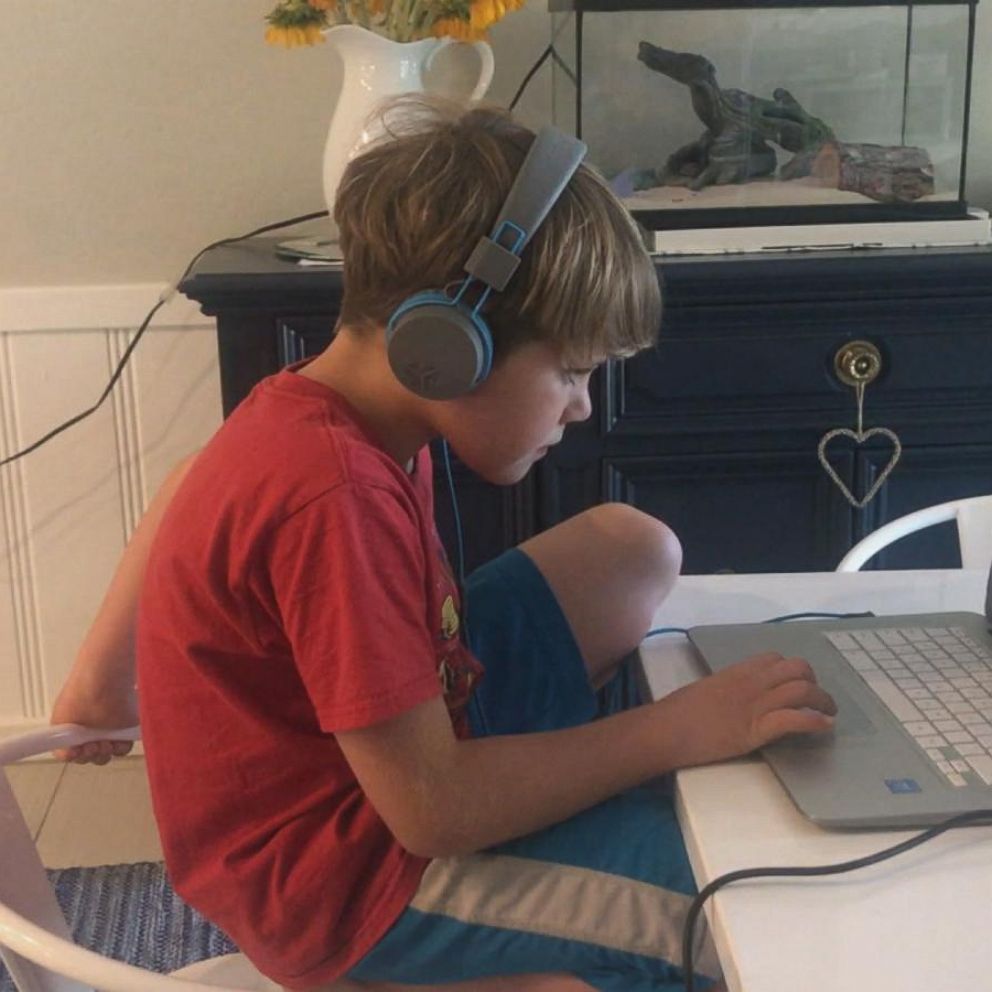Momtroversy: Should kids call adults by their first names?
First names? Ms. or Mr. Last Name? An expert weighs in.
Once kids reach a certain age, they're expected to address adults as something other than "so-and-so's mommy" and "so-and-so's daddy."
In school, the rules are clear. The teacher indicates on day one what the students should call him or her -- and that's that.
But outside of school, when addressing their friends' parents and their parents' friends, the rules for what children should call adults are totally unclear.
"Good Morning America" posed the question of whether or not kids should call adults by their first names in a 30,000 member Facebook group for moms. The responses were varied, but there does seem to be one trend: the days of addressing adults as Mr. or Ms. Last Name are definitely on the decline.
Popular alternatives for a hypothetical person named Mary Jones: Miss Mary, Ms. Mary, Aunty Mary (depending both on culture and degree of closeness to the family) and Ma'am.
Several people who were teaching their children to call adults by their first names mentioned that this had nothing to do with respect level.
"Personally, I grew up calling my parents' friends their names and I do the same for my son," said Jessica Borow Zuckerman. "To me, respect is not in a name -- it is in your behavior and attitude."
I don’t think my children calling their teachers/superiors/adults by their first names impacted their level of respect. In fact, I think the use of first names made my children feel more secure and comfortable with their teachers and their environment.
Lyn Fay grew up using the hypothetical "Mrs. Jones" to address adults but her children do not.
"When I was growing up in Ohio my mom insisted we call adults Mr/Mrs," she wrote. "As a parent in [New York City], my kids' friends called me by my first name... and teachers/principal were also on a first name basis (e.g. Susie, Doreen, Amy)."
"A year ago we moved to northern VA/DC suburbs and everyone here calls me Mrs. Fay," she continued. "To be honest, I don’t like it at all and half the time I don’t respond immediately because it doesn’t register that someone is talking to me! People use titles to show respect, but to me the formality is cold and impersonal."
"I don’t think my children calling their teachers/superiors/adults by their first names impacted their level of respect," Fay wrote. "In fact, I think the use of first names made my children feel more secure and comfortable with their teachers and their environment."
"I think respect is best shown by calling someone whatever he or she prefers so I wish my kids’ friends would call me Lyn! At this point I'd even prefer 'Margot's mom' or 'Edward's mom,' but 'ma'am' puts me over the edge."
In fact, there were multiple respondents who preferred to be called anything other than "ma'am."
One respondent said she heard outside of the South, where she grew up using "ma'am" and "sir" to address adults, it might be considered offensive to do so.
In fact, Lisa Tyler O'Leary said, "I'd be insulted if someone called be "ma'm".
So, what do the experts say?
Lizzie Post, co-president of the Emily Post Institute and an etiquette expert told "Good Morning America" that kids should call people what they want to be called.
"Defaulting to the formal is always appropriate until told otherwise," Post said. "So, if you're unsure, use 'Mrs.' or 'Ms.' Jones. If 'Ms. Jones,' then says, 'call me Cara.' Then you respond, 'of course, thank you.'"
It's more awkward to go from less formal to more formal, Post said.
Defaulting to the formal is always appropriate until told otherwise. So, if you're unsure, use 'Mrs.' or 'Ms.' Jones. If 'Ms. Jones,' then says, 'call me Cara.' Then you respond, 'of course, thank you.'
"How thing have developed is that it's a 'call me by first name society' but not everyone is like that," she said. "Staring informal and then being requested more formal makes it seem as if the person is distancing themselves from you."
Simply asking an adult what they prefer your child to call them is not only respectful, but teaches the child confidence.
"Children eat plenty of foods that don't require a fork and knife but we still teach them to use utensils," Post told "GMA." "That way when they encounter a situation that requires it, they know what to do."
One pitfall?
Don't let a person's marital status dictate the level of formality with which your child addresses a person. Post recalled a situation when a child was introduced to her as "Lizzie" but to the married friend she was with as "Mrs. Jones."
"Try to point out equality in terms in seniority and not marriage and relationships," Post said.







